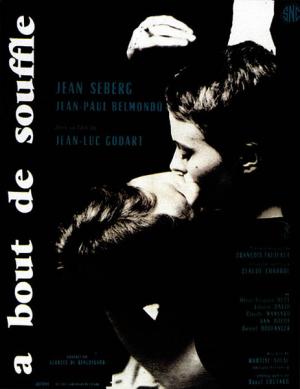Nouvelle vague cinema engages in a polemic with the cinema of the forties ("le cinéma de papa"), proposing an elliptical style which sidesteps the rules of conventional directing. Hence, the movements of the camera lose some of their elegance, becoming harsh and without finesse. Classic narrative is abandoned in favor of an unruly narrative style, full of repetition and nonsequitors, as well as abrupt changes in tone.
For the cinematographers of the Nouvelle Vague what counts is not only the representational aspect of the narrative, but also its discursive aspect (the critical commentary about how the stories were told). The result: "a discourse on the representation." (Sam Rohdie) In À bout de souffle it's not so much the story itself / "representation" (a young gangster steals a car, kills a cop, but in the end is betrayed by his lover and murdered in the street) that contributed to the transformation of cinematic language in the sixties as the metadiscourse (the discourse about the story).
Its transgression of the rules of grammar and syntax of traditional film in À bout de souffle, its elliptical style and its individualist approach were decisive factors which would influence a series of future films, to this day. Godard's success demonstrated the possibility of creating low-budget films, in an independent manner, which imposed the supremacy of the director (la politique des auteurs) and reestablished the link to the representatives of poetic realism ("the creators of the true French cinema"): Abel Gance, Jean Renoir and Jean Vigo.
Reflecting the existentialist ethos and the disorder of its times, the mixture of the tragic and comic genres, of realism and melodrama, the citations from Hitchcock, Hawks, Renoir, Bresson or Rossellini would make À bout de souffle the manifesto of the Nouvelle Vague French cinema, distinguished with the Silver Bear Award at the Berlin Film Festival in 1960. The time for Nouvelle Vague cinema - demonstrates Cristina Corciovescu in Cinema... a little more than a century - would last a short period of time, however, as its representatives would gradually revert - in terms of style, subject matter and the material means of production - to the system which they had denounced.
